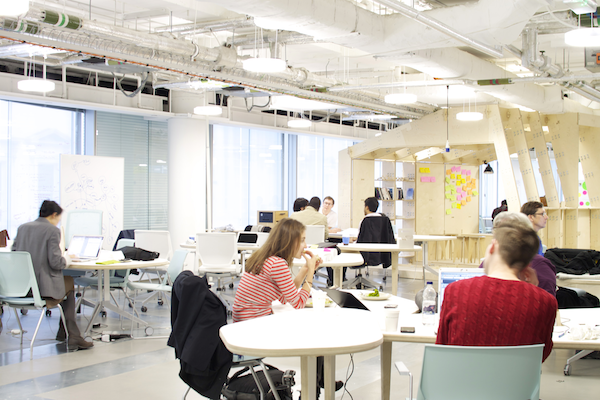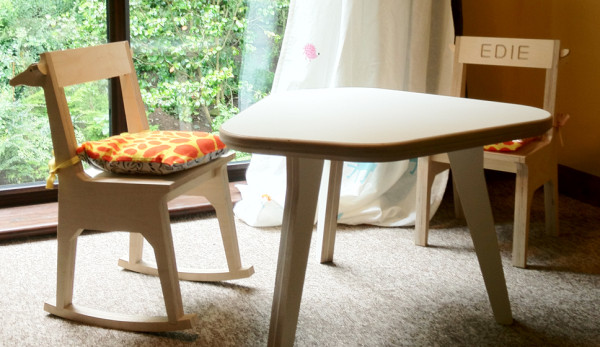Top image: a table from OpenDesk.cc. Cross-posted from Making Society.
The master list of 20+ Open Source Furniture Design is the second most-read article on MakingSociety. Open Hardware isn’t only about electronics. Numerous designers are choosing to place their work under open source licenses, just like Ronen Kadushin or Leo Marius and his OpenReflex.
The team behind FabHub.io – a marketplace to put in touch makers and fabricators, which Lead Designer also co-designed WikiHouse – has launched OpenDesk. It’s a website where users can download open furnitures freely. Makers can build the pieces themselves or ask for someone to make it. OpenDesk is a great demo of what you can do with a marketplace such as FabHub.io. It’s a smart way to share designs and get new users try the service.
This year, we’ve seen Mutual Aid in Motion.
From scaling sharing hubs to Mutual Aid 101 trainings, we’re helping communities build the tools they need.
Every dollar fuels lasting resilience – proving that when we move together, we all move forward.
Ian Bennink, CEO of FabHub, accepted to answer a few questions:
MakingSociety: Who are your primary customers?
Ian Bennink: OpenDesk started with a workspace commission for a London-based tech startup (Mint Digital); we found few solutions that met their criteria for a well-designed and affordable desk. We then developed the design as ‘shareable hardware’ to be deployed in their sister office in New York – and rather than shipping, looked for local fabrication. OpenDesk was born! Since applying this model to the Hub network of co-working spaces worldwide – particularly our home in Hub Westminster – we’ve focused on workspace furniture for creative companies, tech start-ups and non-profit organizations. These mostly order furniture in flatpack or fully assembled which they pay a fee.

CAFE, open designs of cafeteria tables in situation at Hub Westminster in the UK. OpenDesk.cc
Additionally we’re excited that lots of people download the designs for personal use or experimentation, and we also get requests to do (brick & mortar) reselling of the designs by local furniture workshops from Argentina to Switzerland. We’re now developing new pieces for home and kids – these are featured in Domus magazine (Jul’13) and are available for download.
What’s the advantage for OpenDesk of being open source?
We believe that making things locally (or to be precise, distributed manufacturing of designs) is a much more compelling, resource-efficient en effective way to produce great number of consumer products, and we’re thrilled to be part of this movement. It’s not just the internet infrastructure that has made this possible, but also the development of online communities and behaviour (including online reputation and reviews).
The fact that OpenDesk is open source helps us to get feedback not only on designs but also on the practicalities of making with different base materials, finishes and local conditions (humidity, standard sheet sizes etc). We’ve planned from the outset to include designs from multiple designers onto the platform but to ensure quality and consistency of the product range we are proceeding with this in discrete steps (rather than hosting any available design).

Building instructions of MEETING table on OpenDesk.cc
How many models have been built or bought yet? Are they any tend in the behaviour of your customers and community that you would like to share?
Since we hosted the first designs online, we’ve had hundreds of downloads each month. The response has been enormous, in terms of the numbers as well as the geographic diversity in people downloading and making the furniture. Apart from downloads we also offer users to pay to get furniture made for them through a network of makers. They choose from three ways to buy: sawn/unfinished, flatpack – like IKEA – or fully assembled and delivered. Decreased user involvement commands a higher price. Based on ~150 pieces built and/or ordered, we find that individual, creative and non-profit organizations typically choose flatpack whereas commercial organizations prefer fully assembled.

Edie Set. Open Designs for kids furnitures on OpenDesk.cc
==================================
OpenDesk is a pretty inspiring project, for many reasons. The team is not in a rush of putting any open designs on the platform. Their priority is quality of both product and documentation behind it. They also integrated great visualization tools for the community. Each designs being build can be visualized on the world map. Projects in progress are shared on the community wall. As an open hardware startup, they manage to have a great scale of options, from fully maker-oriented to ready to use. The team obviously benefits from their experience with WikiHouse.

Map of OpenDesk furnitures build around the world.
Good job. MakingSociety has no offices yet, but I would love to build myself a great podcast table!
##
Please support Shareable! Watch the two-minute video below & donate to our crowdfunder.

